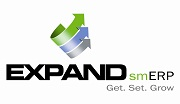“People don’t care about your business, they care about their problems. Be the solution that they are looking for.” – Melanie Dodaro
Are you prepared to handle this kind of a demand?
You’re probably not, if you still have not integrated your eCommerce channels (Magento, Shopify, Amazon etc.) and your ERP system. In this post, we’ll talk about why companies shouldn’t forgo e-Commerce ERP integration needed to truly optimize sales.
Here’s why you should Integrate your e-Commerce and ERP
The need for eCommerce ERP integration is usually overlooked because of the high investment cost or the business disruption caused by having to change existing systems. This is an outdated perception as the costs become worth it when you see the impact on your operations and customer experience.
When we use the term eCommerce in this article, we’re talking about any channel that allows you to make online sales. This could even be your webstore run by Magento, Amazon or Shopify. ERP refers to a single robust system that helps you manage your business data or back-office operations with ease.
Integrating your eCommerce sales channels with your ERP system allows you to operate more efficiently as a business. Your main types of data – order, inventory, item, customer, and shipping/tracking – are communicated in between independent systems.
Most integrations automatically pass this data between your systems. This eliminates your need to manually enter data from one system to another. While a webstore can certainly operate without connections to an ERP, how many tedious practices do you do now that you wish you could get rid of?
Manual practices such as hand-keying sales orders into your ERP. It’s cohesive to update product information in Excel then uploading to your web store or Amazon. Relying on decimating inventory across your systems by hand, or not being able to do it all, can cause you to oversell.
When these processes aren’t automated, it’s easy to make mistakes. Shipping addresses can be entered wrong. Incorrect inventory levels can lead to overselling. Product information could be incomplete, incorrect, or missing.
Further, your customer experience is at stake, when you don’t integrate.
If you want to be successful in the eCommerce business it is imperative to keep up with increased online demand. Therefore your eCommerce strategy should include integration to your best-fit ERP software.
eCommerce ERP integration allows you to easily receive new orders and fulfill them, regardless of where the sale is made. Products and pricing can be managed from one place, allowing you to have accurate and consistent product information.
Benefits of eCommerce ERP Integration
- Reduces manual entry to save time and increases throughout while reducing errors, when entering order, inventory, item, customer and shipping data
- Streamlines inventory synchronization, tracks updates, and provides accurate inventory levels to customers, without hiring staff to manage these tasks
- Automatically notifies customers when orders have been shipped and allows them to track the delivery of products
- Simplifies how you manage price and product changes to inventory
- Be flexible enough to add multiple online (webstores and marketplaces) and offline (brick & mortar) sales channels, without losing operational efficiency.
- Meets tax requirements with automated tax compliances.
- Handles increased demand in online orders without extra resources.
A Customised or best-fit eCommerce ERP Integration is what you need
It’s always possible to build your own custom integration between your online sales channels and your backend systems. To do so, you would need to work with the application program interfaces (APIs) available for your systems. Your data needs to flow between your systems.
Therefore, customer integration can be complex and expensive. Customisation is usually the best approach for organizations who have the right resources and specific requirements to justify it. Most businesses though are probably not truly unique enough to really need to build this type of integration from scratch.
The best way to achieve eCommerce ERP integration is to use a multichannel management platform. This type of technology is usually cloud-based and provides a platform that sits as an operational hub between your ERP and eCommerce systems. Your main types of data are then synchronized between your systems.
Expand smERP is India’s best-fit ERP software for mid-sized manufacturers in retail industry. We offer the best-in-class technology for growth-oriented manufacturers who wish to take their companies to the next level. We provide an in-house selling portal where the users can sell smartly directly or indirectly via Virtual Distribution Network through distributors. With Expand Lead Management module, turning prospective leads into customers becomes a cakewalk. This feature is available on the ERP software and as a mobile App for Android users using Expand smERP software. The mobile Apps allows lead management remotely and enhances speed and customer experience. We also have ready integrations with Amazon, Shopify and Magento for selling wisely online through multi-channel locations. Reap the benefits of a best-fit ERP solution along with eCommerce software in a single unified system.
Book a free trial at +91 9007026542


